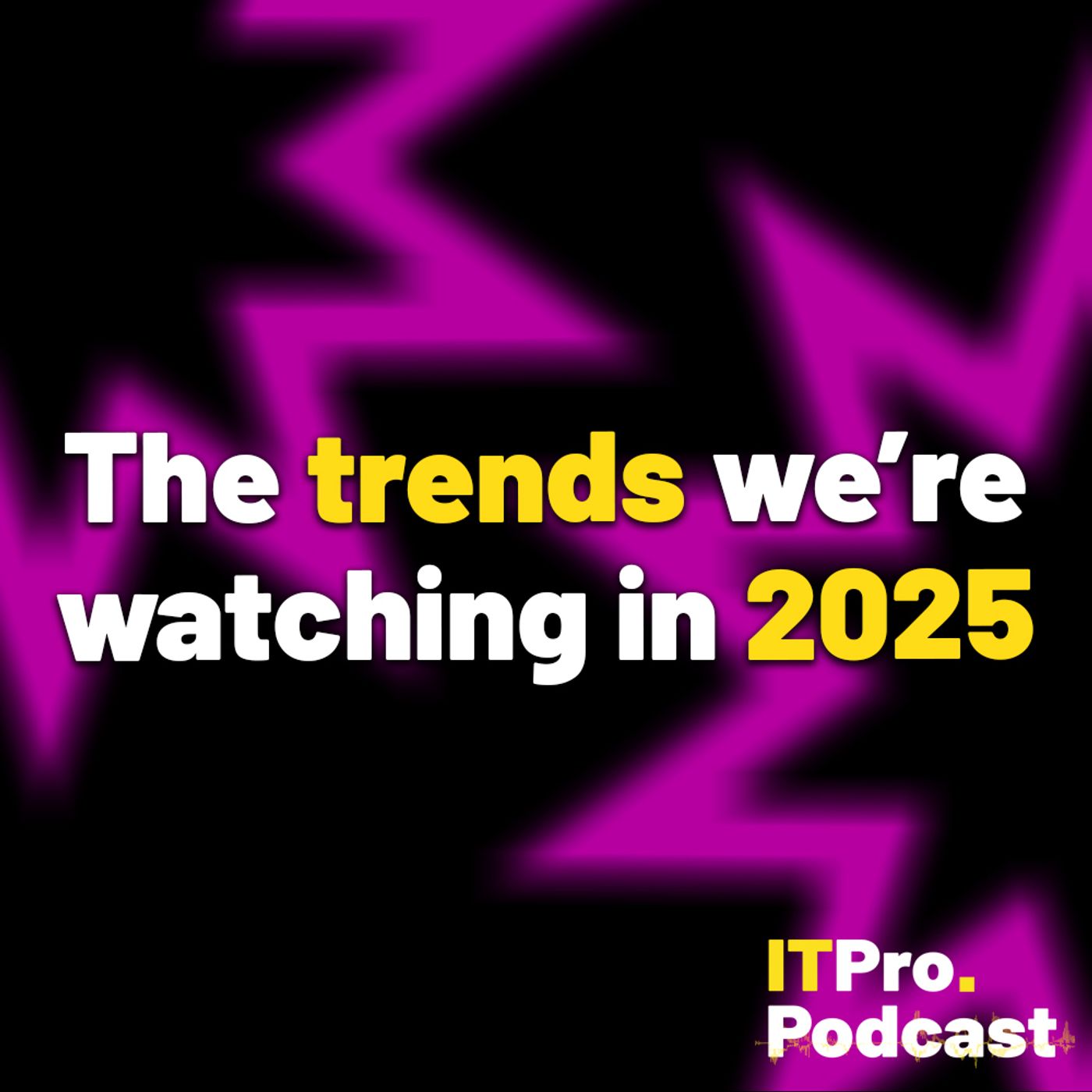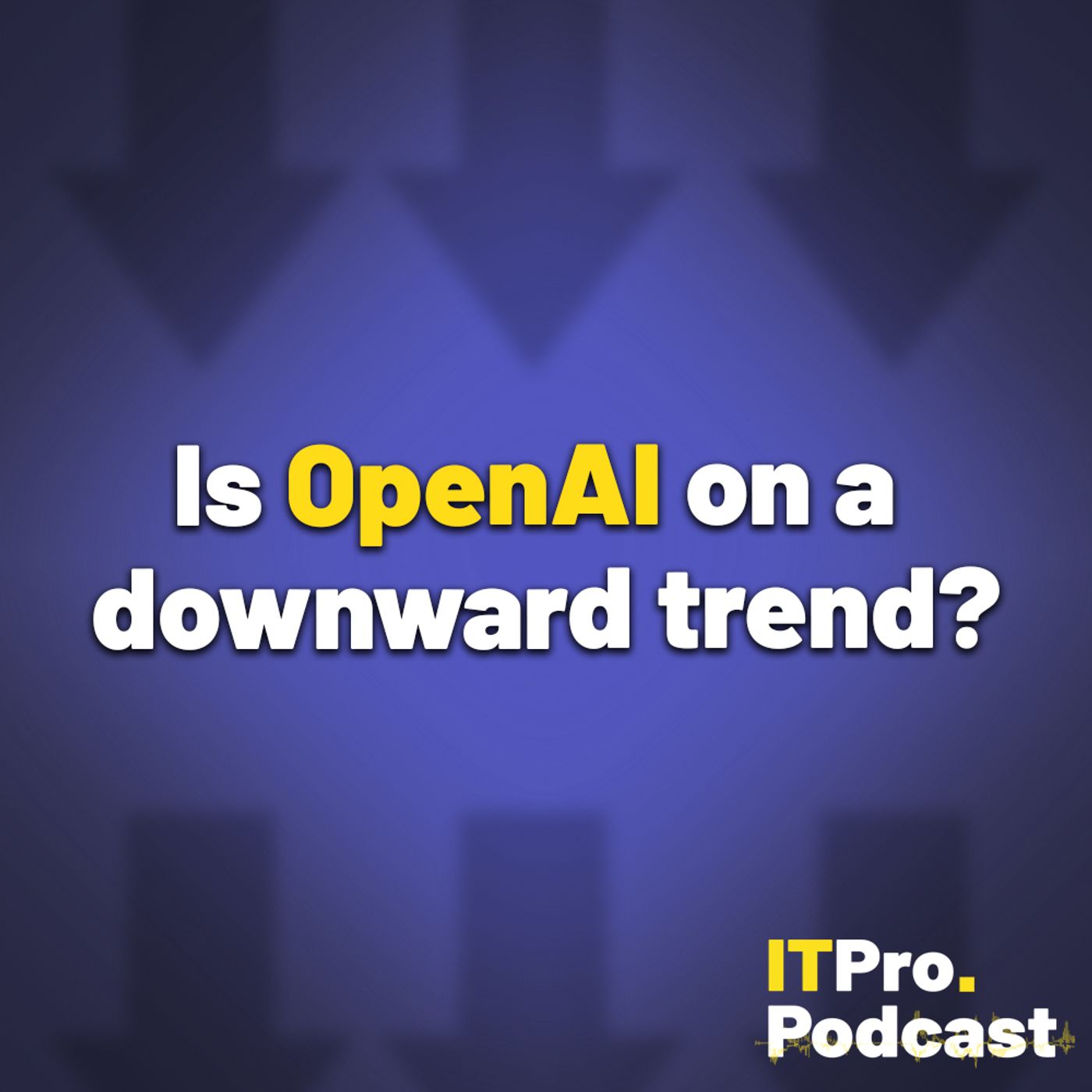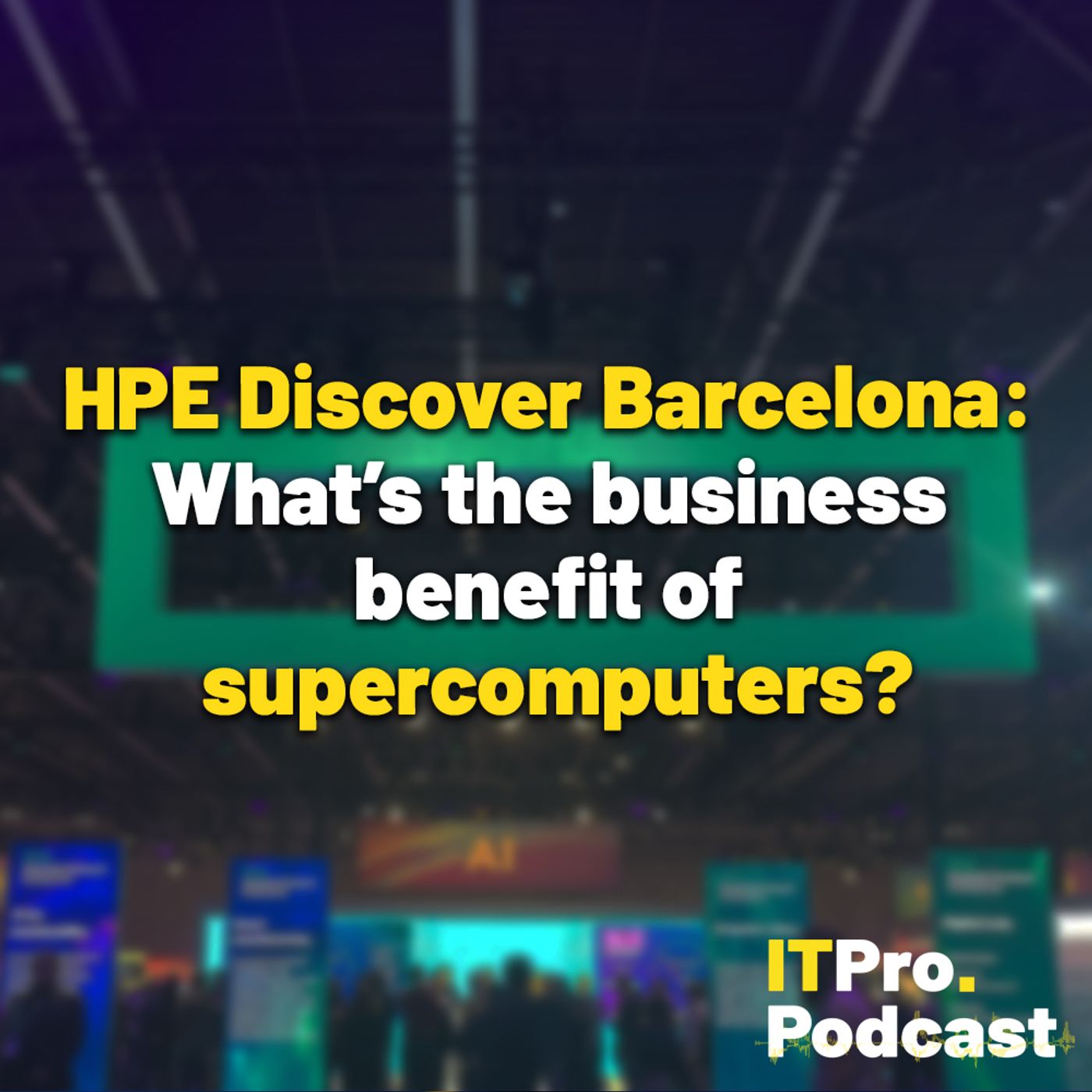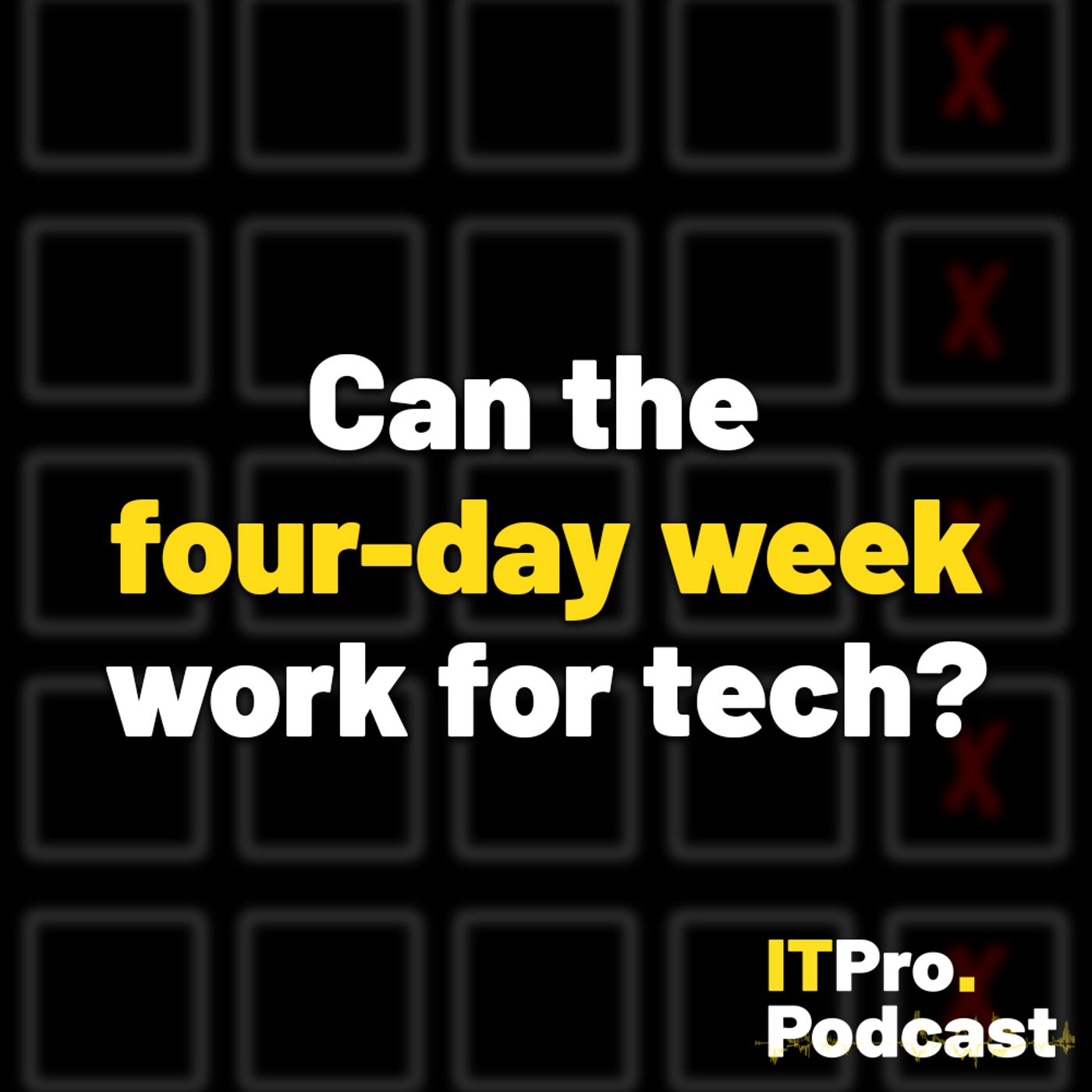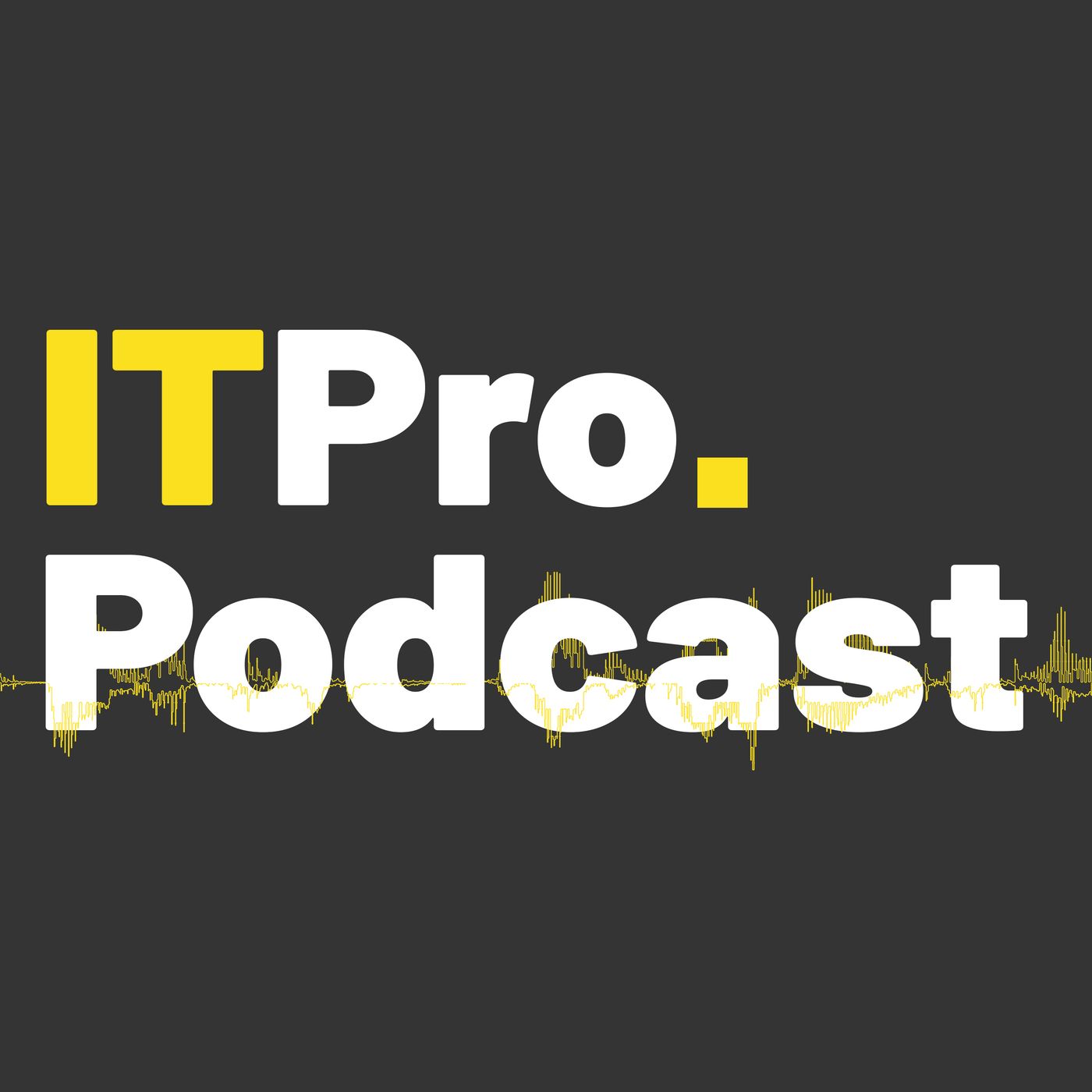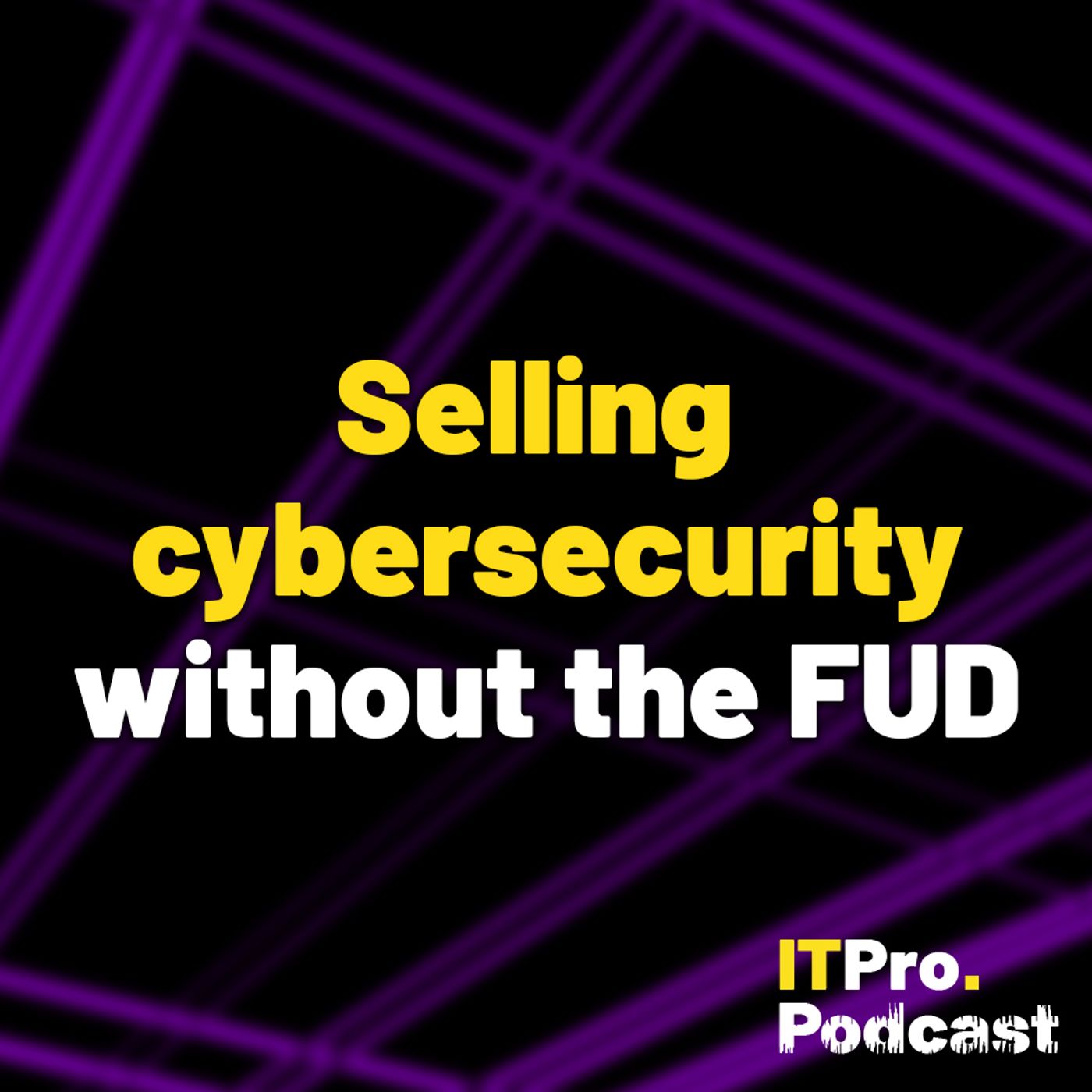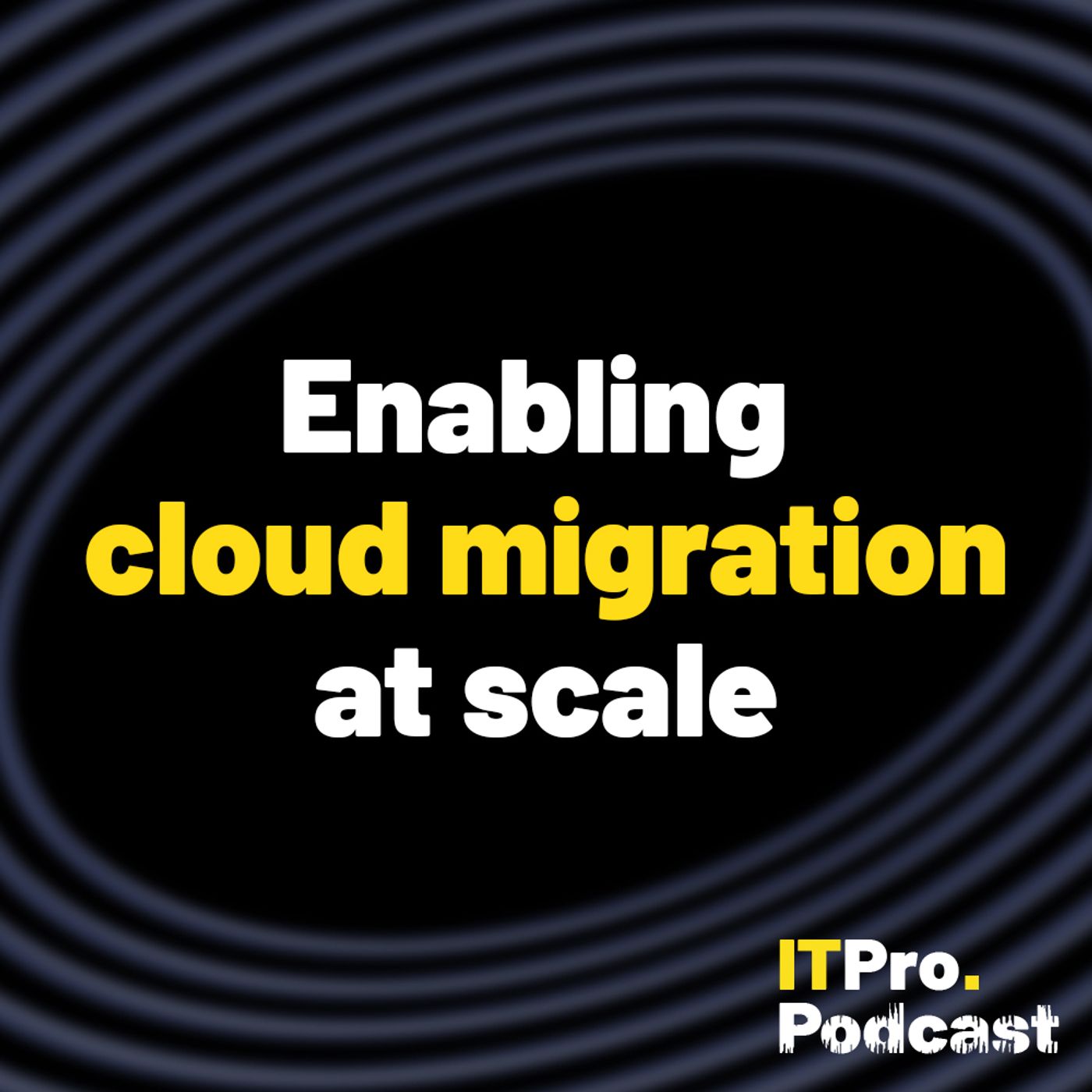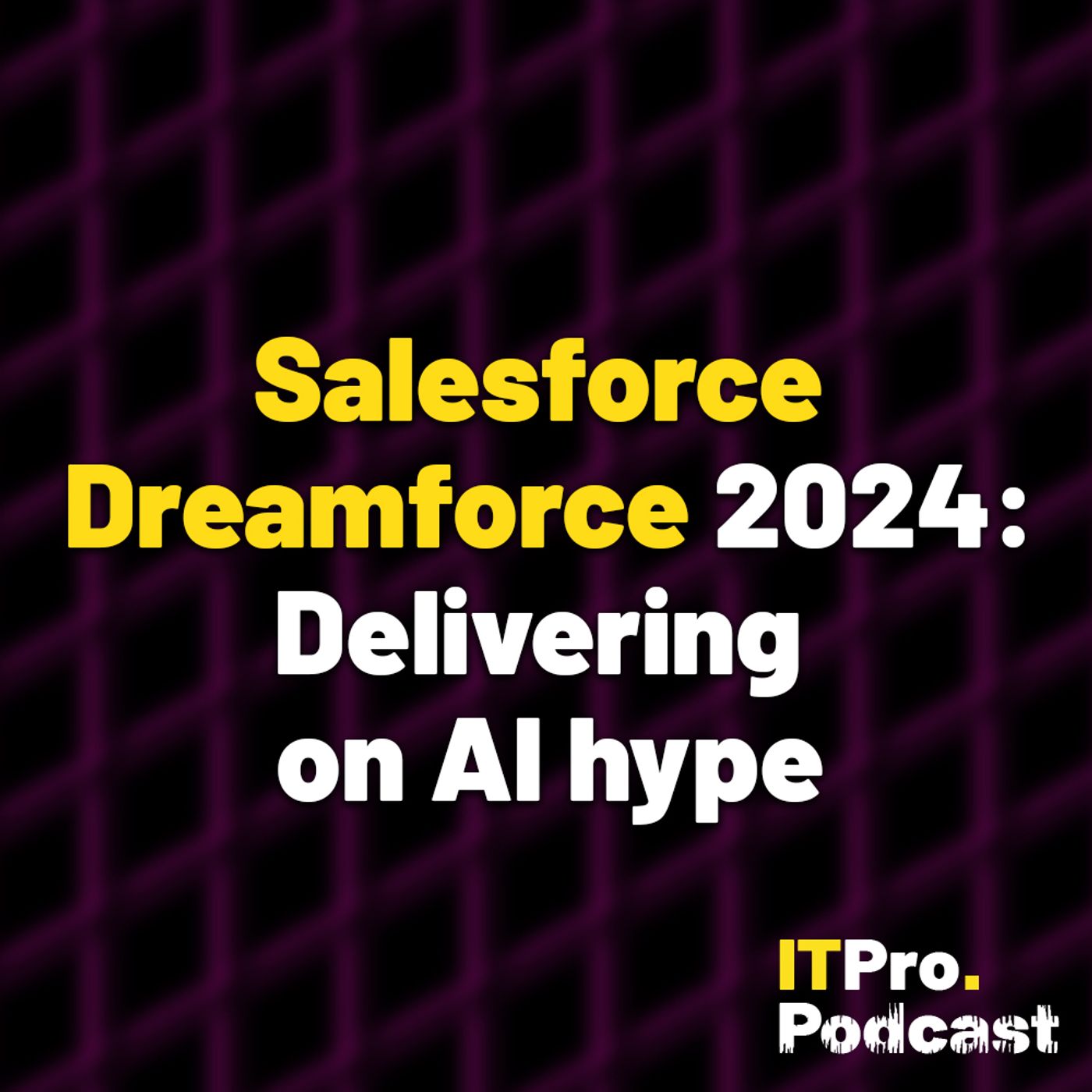Discover The ITPro Podcast
The ITPro Podcast

The ITPro Podcast
Author: IT Pro
Subscribed: 113Played: 3,507Subscribe
Share
© 337677
Description
The ITPro Podcast is a weekly show for technology professionals and business leaders. Each week hosts Rory Bathgate (@rorybathgate) and Jane McCallion (@JaneMcCallion) are joined by an expert guest to take a deep dive into the most important issues for the IT community. New episodes premiere every Friday. Visit itpro.com/uk/the-it-pro-podcast for more information, or follow ITPro on LinkedIn for regular updates.
280 Episodes
Reverse
Anyone who works outside of a major city, or has ever tried to get work done while on a trip to a more rural location, knows that rural connectivity can be patchy. Despite the UK’s high population density and relative lack of difficult terrain, rural connectivity remains an uneven picture. Many rural businesses are still struggling to receive fiber optic cables, let alone leverage 5G signals to keep up with the demands of modern business.Is UK connectivity improving? And how far have we still got to go?In this episode, Jane and Rory speak to David Happy, non-executive director at JET Connectivity and non-executive chairman for transport at Wales Fiber, and Colin Wood, innovation lead at Dorset Council, to better understand the state of rural connectivity in the UK.Read more:UK rural businesses set for broadband improvementsInvest 2035: the UK's modern industrial strategyUK gov has ramped up broadband roll-outs to tackle 'hard-to-reach' areas in 2023BT and OneWeb succeed in "game changer" satellite connection trialThe battle for space broadband dominance is hotting upUK government to run Starlink trials in Snowdonia, Lake District
January is a time for planning, goal-setting, and looking to the future and here on the ITPro Podcast things are no different.While there are sometimes unexpected developments – take ChatGPT in 2022, for example – it’s nevertheless possible to tease out trends from the year gone by that can influence the new one.For this new year’s edition of the podcast, Jane and Rory are joined by Dr John Honchell, IT industry analyst at Future B2B, to unpick the top trends from this year that will shape 2025.FootnotesGenerative AI's cybersecurity potential is clear, but so far it's given hackers the upper handEnterprises are ramping up investment in private AI systemsVMware cuts ribbon on new Private AI offeringsWhat is a sovereign cloud?Sovereign cloud demand is “truly global” according to Oracle — and the company is well placed to capitalize on itOpenAI just raised $6.6bn in funding, but it drove a hard bargain – investors will be stopped from funding rivals
It's now a Christmas tradition on the ITPro Podcast to look back at trends that were expected to dominate the year but then fizzled out.What predictions have gone the way of flying cars and the Metaverse? Which are delayed, perhaps permanently?In this episode, Jane is joined by Bobby Hellard, ITPro’s reviews editor, and Ross Kelly, ITPro’s news and analysis editor, to discuss three of the trends that failed to materialise this year: Intel’s AI dominance, a nuclear solution to data center energy problems, and generative AI taking our jobs.Highlights“They are going to rely on AI to solve the problem of the small modular reactors which they need to power the data centers that are running the AI all while the energy problem continues.”“I remember Pat Gelsinger coming back in January 2021 … this big, shattering news story, prodigal son returns. But if you look at that point there, they were so far behind in production for 10 nanometer process, AMD had caught up really quickly, and by the time Intel had got anywhere near developing that AMD were already on seven nanometer process … when it gets to developing AI, they're they're just so far behind they can't catch up.”“The potential reliance on AI tools in the future could actually have a detrimental impact on broader security teams and people entering the industry and the workforce. How reliant are they going to be if you're going through college, university now, and so much of the sort of industry narrative is around these tools, and you're you're using them, you're learning how to use them, you get into your first job, and then what's your level of expertise compared to a fresh graduate 10 years ago?”Related linksMicrosoft is using AI to get its nuclear projects approved in the USMicrosoft’s Three Mile Island deal is a big step toward matching data center energy demandsGoogle is going nuclearIntel targets AI hardware dominance by 2025Intel layoffs to hit 15,000 roles as falling revenue and poor returns on AI biteIntel CEO Pat Gelsinger announces retirementWhat do security pros want from generative AI?Median construction time for nuclear reactors
It’s the last week before Christmas but while everyone else may be winding up for the festive season, the news never sleeps. In this episode of the ITPro Podcast, Jane is joined by news and analysis editor Ross Kelly to look back at some of the biggest stories from the month of December.Included in this episode:The US charges 14 members of a North Korean IT worker scamIreland has become a ‘data dumping ground’, says Friends of the EarthIs virtual reality the next frontier in software development?Read more:Cyber firm KnowBe4 unknowingly hired a North Korean hacker – and it went exactly as you might thinkLawmakers clash over Irish data center industry growth amid environmental concernsUK warned about data center need, again“Significant concerns” raised over impact of data center growth on regional energy gridsWWDC 2023: Will Apple’s Vision Pro be a VR game changer?Why 2024 won’t be the year of AR, VR or any kind of immersive tech
This week, Google announced that it had made a major step forward in quantum computing with its new quantum chip Willow. The AI and search giant stated that it had successfully completed calculations that would previously have been impossible using its new piece of hardware.In doing so, Google has taken shots at existing supercomputer infrastructure and driven excited chatter on social media – as well as worried posts about how the end of encryption is just around the corner. But how significant is this breakthrough? And what does it mean for the future of quantum computing?In this episode, Jane and Rory recap Google’s Willow announcement and detail what its immediate and long-term implications could be.Read more:Meet Willow, our state-of-the-art quantum chipExplained: P vs. NPPreparing for the quantum revolutionUK government quantum investment welcomed by industryWhy experts are warning businesses to prepare for quantum now – or face critical cyber risks when it arrivesQuantum supremacy is here — so what?The quantum computing sector needs to cut the hype and focus on responsible developmentUK quantum computing ambitions need a 'pro-innovation' regulatory approach akin to AI
If one company can be said to have walked away the winner of the generative AI boom of the past few years, it’s OpenAI. The startup, which was founded as a non-profit with a mission to drive progress toward artificial general intelligence – aka a conscious machine – has led the pack of generative AI developers since it launched ChatGPT in 2022 and quickly became a household name.But in recent months, more and more questions have been raised about the viability of OpenAI in the long term. As some of the biggest companies in the world look to pin down AI return on investment, OpenAI is still laying out its exact profit model. Can it keep its AI crown? Or is it on a downward trajectory?In this episode, Jane and Rory look at the inner workings of OpenAI to understand how the company is faring amid strong competition and how it could perform in the next year.Please note: this episode was recorded prior to the announcement of the new 'ChatGPT Pro' tier.Read more:OpenAI could go bankrupt in 12 months if it doesn’t raise some serious cash – but is the Microsoft-backed AI giant too big to fail?OpenAI seeks $6.5 billion investment as costs continue to mountOpenAI just raised $6.6bn in funding, but it drove a hard bargain – investors will be stopped from funding rivalsEnterprises are ramping up investment in private AI systemsOpenAI tool previously thought 'too dangerous' for the public goes generally availableOpenAI launches $20 ChatGPT Plus in search of greater revenueAWS bet big on Anthropic in the race against Microsoft and OpenAI, now it’s doubling downAmazon’s $4 billion investment in Anthropic faces UK competition probe – here’s what it meansMeta’s Llama 3.1 promises to compete with closed source competitionOpenAI says ads aren't coming soon – if ever
November has come to a close, and the depths of winter are just around the corner. But that doesn’t mean events in tech are slowing down at all – nor that attackers are taking an early Christmas break.In the past month, we’ve seen a slew of cyber incidents, ranging from high-profile exploits of Microsoft vulnerabilities to a ransomware attack on a supply chain software company integral to high-street brands.Elsewhere, Google CEO Sundar Pichai has hailed the strides his company has made with using AI to generate internal source code – but how far can AI code really go, and does it put software engineers at threat of redundancy?In this episode, Jane and Rory speak once again to Ross Kelly, ITPro’s news and analysis editor, to unpack some of the most significant stories of November.Read more:Warning issued after SharePoint flaw puts entire corporate networks at riskBlue Yonder ransomware attack disrupts grocery, retail, and hospitality firmsBreached for years: How long-term cyber attacks are able to lingerHow IT leaders can respond to the evolution of ransomwareGoogle CEO says more than 25% of the company's code is now AI-generated – is this the future of software development?Gemini Code Assist Enterprise – Google wants to simplify code for allGemini Code Assist could be Google's secret weapon to challenge GitHub Copilot
HPE’s annual European conference took place this week in Barcelona and the company’s focus is still firmly on AI. This is bolstered by its supercomputing credentials – El Capitan, the latest supercomputer to come online in the US, was awarded the title of fastest supercomputer just a day before the conference kicked off.In this episode, Jane sits down with Gerald Kleyn, vice president of customer solutions for HPC and AI at Hewlett Packard Enterprise at HPE Discover Barcelona 2024 to discuss what the real-world impact of these high-performance machines is and whether they hold any benefits for the average IT department.Read more:What is HPC really for?AI’s thirsty secretInside Lumi, one of the world’s greenest supercomputersHPE’s AI and supercomputing journey continues with new Cray and Slingshot hardwareEl Capitan powers up, becomes fastest supercomputer in the worldHPE Discover Barcelona 2024: All the news and updates liveIsambard-AI, the UK’s most powerful and sustainable supercomputer, is now up and running
What does it mean to be secure in your sector? While every organization has its own cyber security policies, numerous pieces of legislation also set out minimum requirements for security that firms must reach or else be held accountable through fines.The EU’s Digital Operational Resilience Act – which came into force in 2023 and applies from 17 January 2025 – aims to do just this for financial entities within the region. But what does being DORA-ready mean in practice? And how will the legislation add to the responsibilities of IT professionals?In this episode, Jane and Rory speak to John Stevenson, Technical Director at Skybox, to better understand the EU’s Digital Operational Resilience Act and what it means for businesses.Read more:What is the EU’s Digital Operational Resilience Act (DORA)?DORA and why resilience (once again) matters to the board‘Borderline irresponsible’ attitude to third party risks must change, says expertSupply chain attacks are still plaguing enterprises – here's why
It's that time of year when the clocks change and the nights draw in, the familiar starts to take on a new aspect as the shadows lengthen, and in the world of IT, trends that have been taken for granted are also starting to take on a new shape. As countries battle productivity problems, can they replicate the success of Iceland's four-day working week? Elsewhere, developers have started to question just how useful AI coding tools really are, and OpenAI has had another successful funding round – but is interest in the company starting to wain?In this episode, Jane is once again joined by Ross Kelly, ITPro’s news and analysis editor, to unpack the most interesting news that October brought.Read more:New four-day week trial kicks off for workers across UKIceland’s four-day working week trials have been a roaring success – economic growth spiked, workers were happier, and burnout plummetedThe benefits of a four-day week in techUK's four-day week trial ends, leads to reduced burnout and sick daysOpenAI just raised $6.6bn in funding, but it drove a hard bargain – investors will be stopped from funding rivalsOpenAI could go bankrupt in 12 months if it doesn’t raise some serious cash – but is the Microsoft-backed AI giant too big to fail?
It’s All Hallows’ Day, and we’ve still got Halloween on the brain. It’s that time of year when we tell the scariest stories we can – and for those in tech, there are none scarier than that of major cybersecurity incidents.In this episode, Rory and Jane talk to Solomon Klappholz, ITPro’s cybersecurity reporter, about some of the spookiest cyber incidents of 2024 and what businesses can learn from these ghoulish tales.FootnotesCrowdStrike CEO confirms update "defect" as the source of mass disruptionMillions of devices bricked and $5.4 billion in losses: The cost of the CrowdStrike outage continues to mountThe National Public Data breach exposed nearly three billion users – now the company has filed for bankruptcyNational Public Data breach: Lawsuit claims failed to protect billions of personal records23andMe's disastrous data breach just landed it a regulatory probe23andMe data breach response has been a public relations disaster as it blames customers for data breachThe 23andMe data breach is getting messier by the dayWorld Economic Forum warns of growing ‘cyber insecurity’ amid heightened threat landscapeSubscribeSubscribe to The IT Pro Podcast on Apple PodcastsSubscribe to The IT Pro Podcast on SpotifySubscribe to the IT Pro newsletterJoin us on LinkedInFollow us on YouTube
Every organization has to prepare for the future to the best extent possible, whether that means modernizing one’s infrastructure or adopting cutting-edge technologies like AI.In every sector, leaders are faced with the task of keeping their business up-to-date and competitive by integrating AI workloads within their environment. But getting a project underway and ensuring it delivers sufficient ROI can be a challenge. In this special edition of the ITPro Podcast, in association with Dell Technologies, Jane speaks with Steve Young, SVP and MD for Dell Technologies in the UK, to explain how businesses can adopt AI smoothly and ensure their route to integration works in their own best interests.Read more:Find out more about Dell Technologies Forum Live and registerWhat is hybrid cloud?What is multi-cloud?Dell doubles down on Nvidia partnership with ‘AI factories’ and models at the edge
This episode was first broadcast 4 August 2023.As the economy has become increasingly dependent on data, companies have sought to make more profit from mining user actions such as through loyalty schemes or social media interactions.But individual rights also have to be respected, and businesses have to follow strict data protection procedures.Privacy-enhancing technologies (PETs) are one method for companies to securely search through data to derive value – for example, a bank could search through customer data to expose fraudulent activity without putting the personal information of all the customers involved at risk.This episode, Rory and Jane are joined by Ellison Anne Williams, CEO and founder of privacy-enhancing technology company Enveil, to discuss the dos and don’ts of data use, and how organizations can make use of PETs for enhanced data mining.For more information, read the show notes here.
It’s not every day that cybersecurity marketing professionals get to speak to one another, compare notes, and come up with innovative solutions for getting their voices heard.Despite being a cornerstone of the tech industry, cybersecurity is in need of constant marketing on its behalf. Developers need individuals willing to enter the boardroom to advocate for their product and cybersecurity marketers have to arm themselves with the right storytelling skills to get their message across.The Cybersecurity Marketing Society describes itself as a community for cybersecurity marketers to network, share skills, and learn from one another – but what does this mean in practical terms?In this episode, Jane and Rory speak to Gianna Whitver, co-founder & CEO at the Cybersecurity Marketing Society, and Maria Velasquez, co-founder & chief growth officer at the Cybersecurity Marketing Society, to discuss their work in the sector and the realities of running a podcast all about cybersecurity marketing.Read more:https://cybersecuritymarketingsociety.com/https://cybersecuritymarketingsociety.com/podcast/How AI is transforming businesses in the tech channelMandiant exec thinks AI could boost diversity in cybersecuritySecurity and marketing are the top software spending priorities for 2023
To fully embrace the benefits of the cloud, businesses have to distribute existing workloads across hybrid and/or multi-cloud environments. While the benefits of this digital transformation are undeniable, it’s not a process without its challenges.This can be particularly true for firms with sprawling environments, perhaps as the result of mergers and acquisitions over the years, or those looking to get data in the right shape to be used for machine learning or AI.How can businesses reconcile these problems at scale? And what are the specific steps to success when it comes to cloud consolidation?In this episode, Rory speaks to Rajesh Naidu, SVP, chief architect, and head of data platform & data management at Expedia, to discuss the challenges of cloud migration and how converging workloads can help with AI adoption.Read more:How Expedia Group used platform convergence to harness the efficiency of generative AIHow to prepare and prioritize workloads for cloud migration“The tech guys want to move to the cloud, the finance people want the savings”: IT leaders feel ‘rushed’ to the cloud – here’s why slow and steady wins the raceConsolidate to simplify application security: Why this is a business imperativeWhy 'shadow SaaS' is becoming a major blind spot for enterprise security teamsStructured vs unstructured data managementWhat is machine learning and why is it important?What is generative AI?
When it comes to the companies leading the way in AI development, Salesforce might not be the first name that springs to mind. The veteran CRM provider launched its flagship ‘Einstein’ AI in 2016, which relied on traditional machine learning methods to improve customer experience, but hasn’t sought to go head-to-head with major AI developers.With several years of generative AI hype at its back, the company is trying to carve a out a place for itself as the purveyor of trusted AI tools that live up to the hype – put simply, automated software that helps us work less, and reap more rewards.How has the company sold this vision so far at its annual conference, Dreamforce 2024? And is it likely to succeed given the vicious competition in the space?In this episode, Jane and Rory speak to Ross Kelly, ITPro’s news and analysis editor, live from Dreamforce in San Francisco.Read more:Salesforce wants to show what “AI was always meant to be” – Dreamforce 2024 is its chance to do itSalesforce CEO wants to “break the hypnosis" coming from major AI vendors in scathing critique of Microsoft Copilot“Values drive value” for Salesforce Ventures as AI investment ramps upSalesforce may have had its ‘ChatGPT moment’ with AI agents – and it will take a lot to knock the company off its perchHigh wire acts, Microsoft Clippy, and DIY AI at Dreamforce 2024Dreamforce 2024: All the news and announcements as they happened
How much do you know about open banking? The practice allows companies to share choice information with third parties for the benefit of businesses, but it has yet to be taken up by every bank on the market.NatWest is a frontrunner in this regard. Its Payit service allows businesses to process customer payments quickly and easily, all alongside the ability to securely share customer data with added data insightsBut how does Payit work? And what are its standout benefits?In this special edition of the ITPro Podcast, in association with NatWest, Jane and Rory are joined by Mark Brant, chief payments officer at NatWest Group, to explore the upsides and inner workings of NatWest Payit.https://www.payitbynatwest.com/itproPayit terms and conditions apply. Visit https://www.payitbynatwest.com/legal-hub. Your business must be based and trading in the UK with a turnover above £2M. You must be 18 years or older. Fees apply.
Energy usage in data centers is an increasingly Hot Topic, particularly with AI applications becoming more popular and widely used.While some organizations have talked up their commitment to renewables, such as solar or hydro, others have this month started to discuss a different, perhaps more controversial low carbon path.Elsewhere, a new rebellion against home working is beginning – and this time it's not CEOs or ministers leading the charge.In this episode, Jane is once again joined by Ross Kelly, ITPro’s news and analysis editor, to discuss the biggest stories of the past month.
When people talk about the environmental impacts of data centers, normally the discussion focuses on energy usage. It’s something we’ve talked about at several points this year already, with reference to growing efforts to house AI workloads in green data centers that run on renewable energy to reduce their carbon impact.But while we can generate nearly limitless amounts of green energy, there is a decidedly finite amount of water in the world – and unfortunately, most data centers need vast amounts of fresh water to cool hardware. Without care, big tech could push already drought-stricken communities to breaking point.In this episode, Jane and Rory unpack the growing problem of data center water use, how operators can tackle this, and how it will exacerbate environmental tensions in the near future.Read more:Data center water consumption is spiraling out of controlGoogle data centre soaks up a third of Oregon city's water supplyWhat is a green data center and why are they attracting big investment?Data center waste energy to heat homes in 'UK-first' schemeOVHcloud just open sourced its data center liquid cooling system — here’s whyAWS plans to be 'water positive' by 2030Microsoft lays out water-positive plans for next decade
What’s the biggest cybersecurity threat your business faces right now? Hopefully, an answer springs to mind, along with a list of the solutions you have in place to keep attackers at bay. But ask yourself this: do your employees know? And if the worst did happen, how confident are you that your workforce would know exactly how to respond?Cybersecurity education and training is one of the cornerstones of any enterprise security strategy, keeping companies looped in on the latest attack methods and helping employees foster a security-first mindset.But how receptive are employees to the various training methods, how can training keep up with new advancements such as AI, and where do vendors such as your managed security service provider fit into the mix?In this special edition of the ITPro Podcast, in association with Proofpoint, Jane and Rory are joined by Kevin Leusing, EMEA chief technologist at Proofpoint. Together, they discuss how firms can best use cybersecurity education and training to protect their workforce against the latest threats.Read more:https://bit.ly/proofpoint-cyber-awareness-kit2024 State of the Phish2024 Voice of the CISOWhy social engineering is such a problem and how your business can protect itselfOrganisations could soon be using generative AI to prevent phishing attacksNearly half of EMEA data breaches were due to internal blunders in 2023
Comments
Top Podcasts
The Best New Comedy Podcast Right Now – June 2024The Best News Podcast Right Now – June 2024The Best New Business Podcast Right Now – June 2024The Best New Sports Podcast Right Now – June 2024The Best New True Crime Podcast Right Now – June 2024The Best New Joe Rogan Experience Podcast Right Now – June 20The Best New Dan Bongino Show Podcast Right Now – June 20The Best New Mark Levin Podcast – June 2024
 United States
United States


